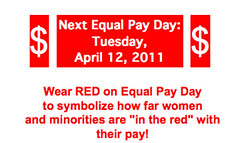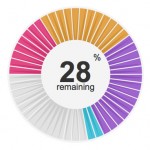 Even over the three-day weekend here in the US we continue to see some excellent discussions, for example Qworky advisor Gayle Laakmann’s Blame Men — And Women and Audrey Watters’ “Ambient Un-belonging” Arrington’s got another post up too.
Even over the three-day weekend here in the US we continue to see some excellent discussions, for example Qworky advisor Gayle Laakmann’s Blame Men — And Women and Audrey Watters’ “Ambient Un-belonging” Arrington’s got another post up too.
Looking ahead, the Women In Tech teleconference on September 15 includes TechCrunch CEO Heather Harde is on the “Female Ferocity” panel. There’s the sold-out Grace Hopper Celebration of Women in Computing in Atlanta at the end of the month. And late last week, Arrington tweeted that they were going to add an all-women panel to TechCrunch Disrupt to discuss “women’ issues”.*  So I suspect we’ll be hearing a lot more about this …
Hopefully as we move forward, as well a continued focus on the underlying issues and realities of structural biases against women and minorities, we’ll also see a lot more discussion about what people can do. Mary’s Where to after the required reading? on Geek Feminism asks for suggestions. I’ve got a draft response in What each of us can do; feedback welcome.
In any case I thought it would be useful to collect the links to what’s been written so far. It’s really striking how much good stuff there’s been on blogs and Twitter (I collected some of the tweets that caught my eye in various comments in another thread**) so hopefully the list it’ll be valuable to anybody else writing about it.
First though, in a comment that the Arrington’s of the world will no doubt dismiss as pandering, I’d like to take a moment and express my admiration for the women in technology who have been doing such great work to change the ratio. The women I know who speak out on gender equity aren’t “whiners”, as they’re so often dismissed by people who don’t want to hear what they’re saying.  They’re remarkably successful despite the huge biases against them, and somehow manage to find time for diversity work in addition to having careers, friendships, and often families.
Of course they’re frustrated when privileged guys who clearly haven’t looked at the problem in any detail deny there’s a problem, attack women and allies, and disclaim responsibility — and who can blame them? Despite that, though, they’re a remarkably positive group … and with good reason: they’ve invested a huge amount of time and effort here over the years and it’s really starting to pay off.
So kudos and respect to you all. I’m impressed by what you’ve accomplished and proud to know you And thanks, too: the technology world is a much more pleasant for your efforts!
And you know, stuff like this makes a big difference. There was a very encouraging episode late last week in response to Chiara Atik’s Guest of a Guest article on TechStars New York’s ratio of 46 male mentors and only two women. When Cindy Gallop brought it up on Twitter, David Tisch of TechStars quickly reached out. Props all around. More of this please!
Continue Reading »






 Even over the three-day weekend here in the US we continue to see some excellent discussions, for example Qworky advisor Gayle Laakmann’s
Even over the three-day weekend here in the US we continue to see some excellent discussions, for example Qworky advisor Gayle Laakmann’s 


